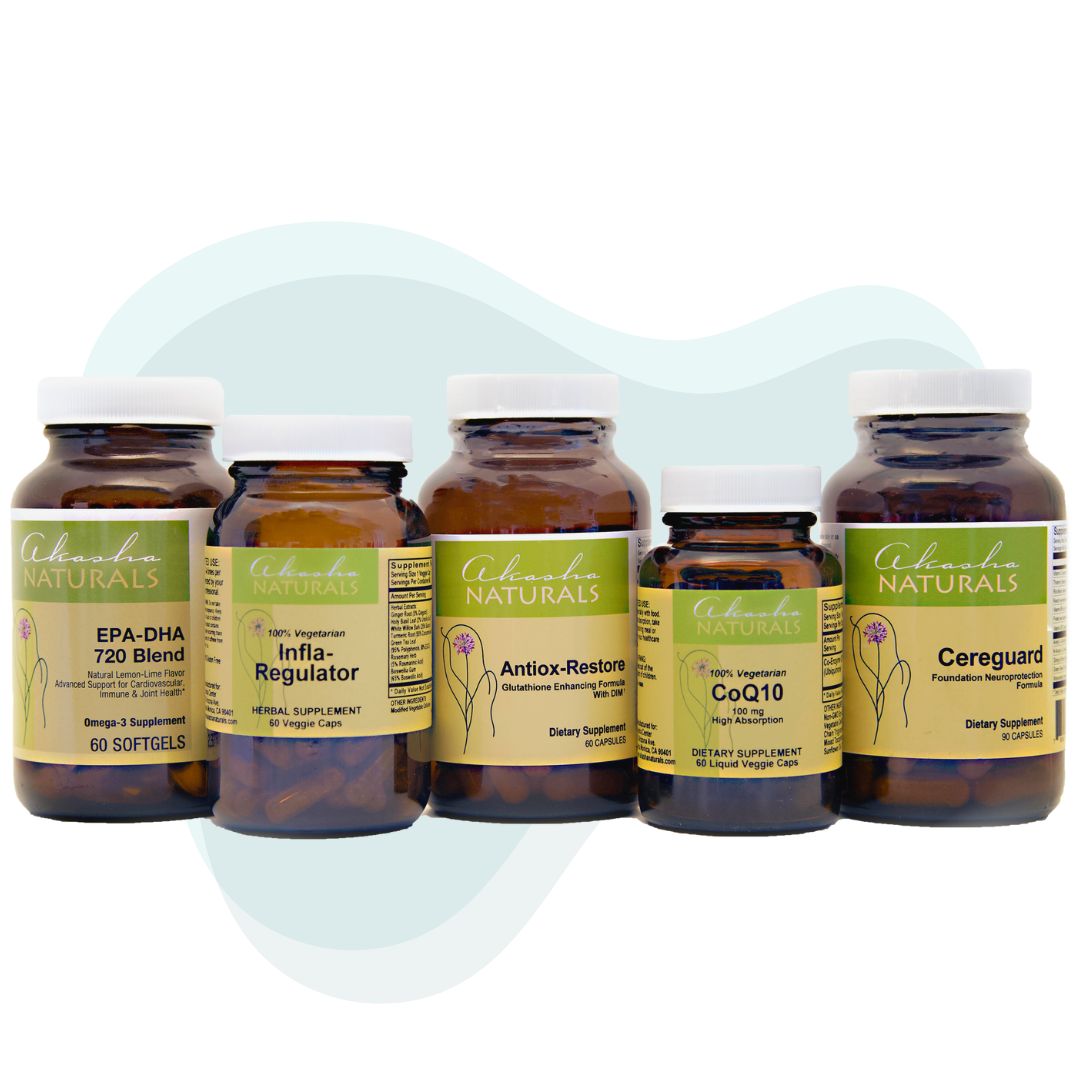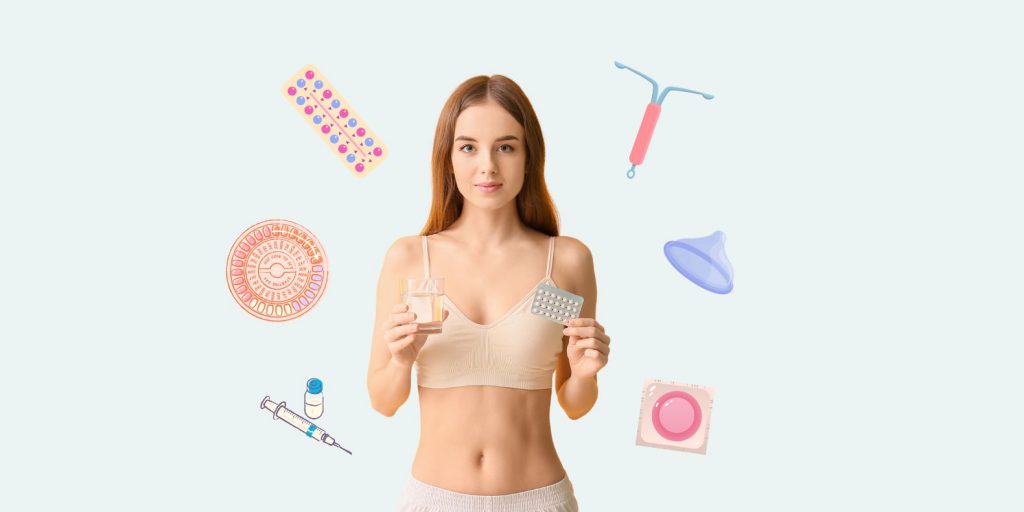Congratulations Dr. Ney on her excellent article!
Article originally published in Goop
A Q&A with Maggie Ney, N.D.
Q: In your medical opinion, what is the single healthiest long-term version of birth control? Is there such a thing?
A: There is no such thing. There are so many birth control options and what is right for one person may not be the best option for another person. Or what is right for one person at a particular time in her life (like a young woman in college) is different from when this same person is in a married, monogamous relationship.
In choosing birth control, it is really important to do the research, understand the pros and the cons of each choice, and combine this with your health history and current healthcare needs. The best option can be arrived at when these variables are taken into consideration.
Q: Are there known long-term effects of being on the pill—weight, libido, fertility, or otherwise?
A: A long-term side effect of being on the birth control pill, which can also affect fertility, is nutrient depletion. Birth control pills require extra amounts of vitamins to help the liver metabolize the pill. Over time, this has been shown to reduce vitamins B2, B12, B6, zinc and folate levels, which are important for conception and healthy pregnancy. If a woman plans to start trying to conceive after stopping the pill, it is very important that she start taking a multivitamin or prenatal vitamin at least three months prior to trying to conceive.
Research does not seem to support a direct link between birth control pills and weight gain, but I have seen many women in my practice gain weight while on the birth control pill—generally due to fluid retention and increased appetite. The higher the estrogen content of the birth control pill, the more likely a woman is to experience weight changes. Birth control pills these days contain lower amounts of estrogen, so weight gain tends not to be as prevalent a side effect as it was years ago. Some women do not metabolize the hormones in the birth control as efficiently as others; I believe these women likely experience more of the physical changes. For most women, any weight gain or appetite change is short-term and goes away within 12 weeks.
Libido is interesting. Birth control pills cause the liver to increase production of a protein called “SHBG,” which stands for Sex Hormone Binding Globulin. This protein actually binds to free testosterone so it cannot bind to other cells. When testosterone binds with SHBG, it does not reach the cell and so does not have its usual libido-enhancing effects. Some women do experience lower libido, even after discontinuation of the pill, since SHBG can remain elevated in the body for some time afterward.
For other women, though, the security of knowing pregnancy is being prevented has a libido-enhancing effect. The pill was invented to separate procreation from sexual pleasure. For many women, this sense of freedom causes libido to soar. In my practice, I have seen both an increase and a decrease in libido among women on the pill.
With respect to fertility, there are no studies that show long-term use of the pill affects it. Once you go off the pill, your fertility goes back to where it would have been had you not been on it. So if you started the pill at 18 and stopped at 28, you have your 28-year-old fertility. For women who had a regular cycle before going on the pill, getting pregnant soon after taking their last pill might not be an issue; many women, to their surprise, do.
But if you started the pill because your cycles were irregular, your cycle will likely still be irregular once you discontinue it. Fertility depends on a lot of factors, and clearly you need to ovulate in order for sperm to meet egg and make a baby. Ovulation is dependent upon the appropriate communication between the brain and the ovaries. For some women, this communication does not resume as quickly, and they may find that it takes a few months before they start cycling regularly again.
Other side effects every woman should be aware of—and these generally are discussed with women prior to starting the pill—are an increased risk of high blood pressure, blood clots, and heart attacks (particularly in smokers and women over the age of 35), and more:
- The pill can trigger vaginal yeast infections by altering hormones. This can become a chronic issue for some women.
- It may increase rates of cervical cancer, liver cancer, and development of benign liver tumors. There are mixed studies that link birth control pills to an increased risk of breast cancer, although the general consensus is that it does not increase breast cancer risk.
- The pill can also increase inflammation in the body, which can be measured by a blood test called hsCRP. An hsCRP of less than one is optimal; many women on birth control pills experience slightly elevated levels of inflammation as measured by the hsCRP. Chronic inflammation is associated with heart disease and many other diseases. So if a woman is on birth control, she can make simple changes to support an anti-inflammatory lifestyle, such as eating a clean, whole-food diet rich in dark leafy greens and omega-3 fatty acids (chia seeds, flaxseed oil, flaxseeds, pumpkin seeds, wild salmon, sardines, hemp seeds, and hemp milk, for example). In addition to following an anti-inflammatory diet, I encourage women on the birth control pill to take a good multivitamin and probiotic to offset nutrient depletion and prevent yeast overgrowth.
Q: Is there compelling research suggesting a link between the pill and depression and/or other mood disorders?
A: Research has not been able to prove or disprove a link between depression and birth control pills. Some research suggests that birth control pills may have a short-term effect on mood that goes away as a woman’s body adjusts to being on the pill.
But if you talk to women about their experience—as I do every day in my practice—you will hear that there is a connection. Some women report that as soon as they stop birth control, the sadness and internal rage disappears. When a symptom begins when a medication starts, and stops once the medication is discontinued—there is a link, regardless of what the research says. This is where the practice of medicine can falter, because as practitioners, we need to appreciate the complexities of a woman’s health and the possibility that research studies do not always consider all variables.
It is possible that some women’s specific detoxification pathways or methylation pathways are such that they do not respond well to birth control pills. Methylation, for example, is a very important biochemical pathway in the body, responsible for making methylfolate, which is the active form of folate and is very important for mood and healthy pregnancy, among many other signficant effects. Women with a mutation in one of the methylation genes (which is very common) have compromised ability to make methylfolate. Research does support the connection between methyfolate and depression, so if a woman takes birth control pills and also has a methylation mutation, then her methylfolate levels are more likely to drop below normal levels and thereby contribute to depression. My point is to highlight how difficult it is to study the connection between mood and a medication when one’s genome and environment is not considered.
A woman knows her body. If she starts to feel depressed after starting the birth control pill, it is likely the pill. She should contact her doctor to discuss whether it is appropriate to give the pill three cycles, try another formulation to see if mood is improved, or if the best decision is to stop immediately. The situation of responding poorly to birth control pills can present an opportunity to learn more about your body.
Q: What are the health benefits of being on the pill? And do they subside over time?
A: There are health benefits to being on the birth control pill, including a decreased risk of developing ovarian and uterine cancer. The longer a person is on the pill, the greater the reduction in cancer risk.
Unfortunately, some benefits of taking birth control pills come at the expense of not addressing the root cause of hormonal imbalances. For example, the pill is often taken to help with regulating the menstrual cycle—shutting off the normal cycle and artificially inducing a cycle with the hormones in he pill. Any benefit to the cycle—regulating the cycle, easing cramps, controlling PMS, reducing acne, reducing period blood flow—are controlled by the pill, so once a woman goes off the pill, any imbalances that were present prior to starting it will still be present.
Birth control pills help to reduce bone loss in women who are not getting their period. I’m not referring to menopausal women, but rather to young women who either due to lifestyle (stress, excessive exercise, and/or calorie restriction) or a hormonal disorder, have skipped their periods over a stretch of months. These women are at risk of developing osteoporosis; being on hormonal birth control slows this process.
For some women, being on the pill is the right choice for where they are in their lives. I see women who are in college who are not in the place in their lives to make significant changes to address irregular cycles, cramps, heavy flow, PMS, or acne. In this situation, we discuss all the pros and cons, and if they understand they are not addressing the root cause of these problems and are okay with it, then I support them going on the pill. I make sure they are on a multivitamin and a probiotic, and at every annual appointment we re-assess whether to continue or stop the pill.
Q: We’ve been told that it’s not a good idea to go off the pill and then back on it—is that true, or is there any benefit to “taking a break” from the pill?
A: There does not seem to be any health benefit—or harm—from taking a break from the pill.
Q: Are there meaningful differences between brands? What about the patch forms where you get your period less frequently? What about generic options? Is it best to stay with the same brand, or switch brands over time?
A: When it comes to your birth control brand, if it is working for you, stick with it. But there are some differences worth noting:
Most oral contraceptives are combination pills, which contain estrogen (typically ethinyl estradiol) in different doses and a synthetic progesterone known as a progestin (there are eight different forms of progestins). There is also the mini-pill, which only contains progestin.
The estrogen content can be divided into high, medium, and low estrogen-containing pills. (Even the highest dose of estrogen used these days is substantially lower than the dose used when birth control pills came on the market.) Generally, the higher the estrogen content, the more likely a woman is to experience side effects like weight gain, headaches, breast tenderness, and development of blood clots. The lower-estrogen pills can contribute to more breakthrough bleeding, vaginal dryness, and pelvic discomfort.
Some progestins offer more protection against acne and abnormal hair growth, while others can affect potassium and lipoprotein particle levels. The progestins in the third-generation birth control pills (specifically Desogestrel and Gesodene) are associated with a higher risk of blood clots than second-generation birth control pills. So if you are taking a third-generation birth control pill, it may be worth discussing whether it is the best form for you.
There are so many forms of birth control pills available, and everyone has their own unique reaction to being on the pill. In some cases, it has to do with the estrogen content or the form of progestin; in others, there may be no explanation as to why one pill causes side effects and another does not.
I rarely prescribe the patch, which administers estrogen at a much higher dose than the pill and has more side effects. It is also not considered effective for women who weigh over 198 pounds.
The ring is an option that only needs to be changed once per month. A lot of women love the convenience of only having to do something once per month—but the ring contains a third-generation progestin, so the risk of developing a clot is higher than many birth control pill options.
Q: Anything parents should know when their daughters are going on the pill for the first time?
A: Birth control pills are often recommended to adolescents and young women as a simple solution to irregular menstrual cycles, cramps, heavy flow, and acne. I was prescribed the birth control pill when my cycles were irregular in high school. At the time, my mom and I thought it was such an easy solution—it only occurred to me later that the pill was just a Band-Aid. I want parents to know that the pill does not address the root cause of menstrual problems, and that there are other options. Many young women and their parents may still decide to choose the birth control pill, but a complete discussion of all possible therapies should be had when the pill is recommended for a menstrual disorder.
Parents need to know the possible side effects, like mood changes, spotting, nausea, and headaches. These tend to resolve within three months, and not everyone will experience them. If parents feel comfortable with the risks and possible Band-Aid approach to treatment, and their daughters want to take the pill, they can support their decision while still being mindful of potential side effects. I also talk to parents and their daughters about taking a good multivitamin and probiotic while on the pill to counter any possible nutrient depletion or flora disruption.
Q: For women who are prescribed the pill because they have PCOS (polycystic ovarian syndrome) but who don’t want to be on the pill, are there other options?
A: Yes. Adjusting the diet to support healthy insulin production and blood sugar levels is very important: A woman with PCOS responds differently to carbohydrates than a woman without PCOS. Women with PCOS have higher insulin resistance. When a woman consumes carbohydrates (which are broken down in to sugar in our body), blood sugar levels elevate and trigger the release of insulin from the pancreas. In the case of insulin resistance, cells do not respond to insulin’s message to absorb the sugar in the blood. Instead, the body reads that there is still high blood sugar, so it releases even more insulin.
The way to adjust diet to address the metabolic and hormonal imbalances of PCOS is to reduce carbohydrate intake. The degree of restriction needs to be individualized. Processed carbs like bread, pasta, crackers, pastries should be avoided by all women with PCOS—at least for some period of time. Some women are able to tolerate one to two meals with some whole grain carbs like brown rice or quinoa while others really need to go through a period with very little carbs. Carbohydrates’ effect on insulin release and blood sugar levels shift hormones in a way that contributes to the irregular menstrual cycles, acne, increase in hair growth, and cystic ovaries associated with PCOS, so a clean, whole-food diet with limited carbs, plenty of exercise, and supplements that support hormones and blood sugar levels can have a profound effect in balancing hormones and eliminating the symptoms associated with PCOS.
Q: What’s the hormone difference between the pill and IUDs?
A: The hormones in the birth control pill affect the whole body and contain estrogen and a progestin, or just a progestin. You need to take one pill orally every day. It works by preventing ovulation, thinning the uterine lining, and thickening cervical mucus.
There are two types of IUDs: hormonal and non-hormonal (more below). The hormonal IUD releases locally in the uterus the synthetic progestin, levonorgestrel. The amount of progestin released is a much smaller dose that that which is released by the birth control pills. The hormonal IUD does not contain estrogen. The progestin works by thickening cervical mucus to prevent sperm from entering the uterus, inhibiting sperm from reaching the egg and thinning the lining of the uterus. It can prevent pregnancy for five years.
I prefer the hormonal IUD with locally released hormones to the pill. Since the hormones work locally within the uterus, rather than being systemically absorbed, there is less of an inflammatory response and there is also often less emotional side effect.
Q: What is the best non-hormonal option—copper IUD, condoms, something else?
A: The copper IUD is great—it can be inserted vaginally into the uterus and protects against pregnancy for up to 10 years. (The non-hormonal IUD contains copper, which is toxic to sperm. Most sperm are killed before they can fertilize with an egg. If fertilization does happen, the copper alters the uterine lining, which prevents implantation.) It is very effective against preventing pregnancies. But, for some women, it causes heavier periods with more cramps.
Condoms are a great choice and importantly, the only form of contraception that also protects against sexually transmitted infections.
I also really love the Fertility Awareness Method. This is a wonderful option for a woman who has a regular cycles and is excited about learning about her natural fertility signs. Women are only fertile about six days of the month—up to five days before ovulating (which is how long sperm can live inside a woman) and 24 hours after ovulating. During the time leading up to ovulation, a woman’s cervical fluid becomes clear, slippery, wet—like egg white. Also, during this time, the cervix rises within the vaginal canal and becomes softer. And 24 hours after ovulation, a woman’s basal body temperature (your lowest temperature, determined by taking your temperature before bed and when you wake up; the technique involves an extra-sensitive thermometer and very specific steps for measuring) increases at least 0.5 degrees. Once the temperature remains elevated for three consecutive nights, she can feel comfortable knowing she is past her fertile window.
I like the FemCap, as well, which is a reusable, hormone-free, latex-free device that a woman inserts vaginally. It is less bulky than the diaphragm. It takes a little practice inserting and removing but once mastered, is a good non-hormonal birth control option.
Vasectomy or tubal ligation are other options if a couple is done having children. Tubal ligation may also lower the risk of ovarian cancer by removing the part of the fallopian tube where ovarian cancer often grows.
Q: Are all condoms created equal? And what exactly is spermicide?
A: Condoms prevent pregnancy and sexually transmitted infections. No other birth control method does both jobs, and all condoms share these very important roles. When used correctly, all condoms have a 98% success rate in preventing pregnancies. There are some differences among condoms that many people do care about: They come in different sizes and are made from different materials, such as latex or polyisoprene. Some condom companies are committed to making ethical, fair-trade, and vegan condoms.
Spermicide kills sperm before sperm can enter the uterus and fertilize an egg. It can come in many different forms: gel, cream, foam, film, and suppositories. It is not a reliable form of birth control on its own. Studies show about a 75% effectiveness rate—so best to use with condoms or other barrier methods, like a FemCap. Also, spermicide can cause skin irritation, which can increase the risk of regular infections, as well as sexually-transmitted ones.
The views expressed in this article intend to highlight alternative studies and induce conversation. They are the views of the author and do not necessarily represent the views of goop, and are for informational purposes only, even if and to the extent that this article features the advice of physicians and medical practitioners. This article is not, nor is it intended to be, a substitute for professional medical advice, diagnosis, or treatment, and should never be relied upon for specific medical advice.
Dr. Maggie Ney is a licensed, board-certified naturopathic doctor and co-director of the Women’s Clinic at Akasha. Call 310-451-8880 or email info@akashacenter.com to make an appointment!








